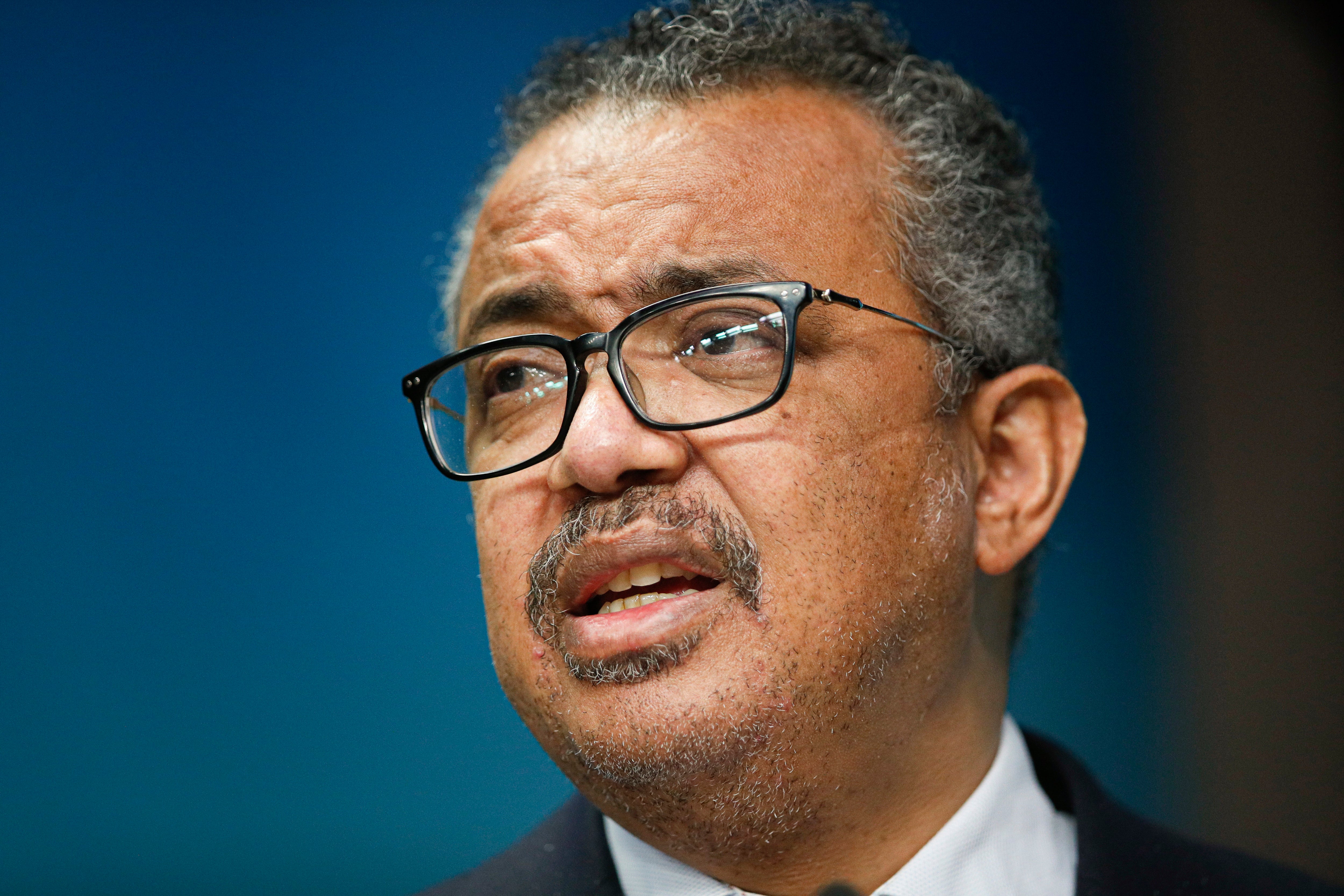WHO works to spread COVID vaccine technology to more nations
The World Health Organization is creating a global training center to help poorer countries make vaccines, antibodies and cancer treatments using the messenger RNA technology used to make COVID-19 vaccines

Your support helps us to tell the story
From reproductive rights to climate change to Big Tech, The Independent is on the ground when the story is developing. Whether it's investigating the financials of Elon Musk's pro-Trump PAC or producing our latest documentary, 'The A Word', which shines a light on the American women fighting for reproductive rights, we know how important it is to parse out the facts from the messaging.
At such a critical moment in US history, we need reporters on the ground. Your donation allows us to keep sending journalists to speak to both sides of the story.
The Independent is trusted by Americans across the entire political spectrum. And unlike many other quality news outlets, we choose not to lock Americans out of our reporting and analysis with paywalls. We believe quality journalism should be available to everyone, paid for by those who can afford it.
Your support makes all the difference.The World Health Organization is creating a global training center to help poorer countries make vaccines, antibodies and cancer treatments using the messenger RNA technology that has successfully been used to make COVID-19 vaccines.
At a press briefing in Geneva on Wednesday, WHO Director-General Tedros Adhanom Ghebreyesus said the new hub will be in South Korea and will share mRNA technology being developed by WHO and partners in South Africa, where scientists are working to recreate the COVID-19 vaccine made by Moderna Inc. That effort is taking place without Moderna’s help.
“Vaccines have helped to change the course of the COVID-19 pandemic but this scientific triumph has been undermined by vast inequities in access to these life-saving tools,” Tedros said.
It's the first time that WHO has supported such unorthodox efforts to reverse-engineer a commercially-sold vaccine, making an end run around the pharmaceutical industry, which has largely prioritized supplying rich countries over poor in both sales and manufacturing.
Both Moderna and Pfizer-BioNTech, makers of the two authorized mRNA COVID-19 vaccines, have declined to share their vaccine recipe or technological know-how with WHO and its partners.
WHO said the shared technology would hopefully result not only in coronavirus vaccines, but would also be useful in making antibodies, insulin and treatments for diseases including malaria and cancer.
WHO’s chief scientist Dr. Soumya Swaminathan estimated that the attempt to recreate Moderna’s vaccine would probably not yield any usable shots until late next year or even 2024, but said that timeline could be shortened considerably if the manufacturer agreed to help.
The global disparity in access to COVID-19 vaccines is enormous. Africa currently produces just 1% of the world’s COVID-19 vaccines and only about 11% of its population is immunized. In contrast, a European nation like Portugal has had 84% of its population fully vaccinated, and over 59% of its people have also had a booster shot.
Last week, WHO said six African countries — Egypt, Kenya, Nigeria, Senegal, South Africa and Tunisia — would receive the knowledge and technological know-how to make mRNA COVID-19 vaccines. Tedros said Wednesday that five more countries would now receive support from the South Africa hub: Bangladesh, Indonesia, Pakistan, Serbia and Vietnam.
Earlier this year, the Cape Town company attempting to replicate Moderna Inc.’s COVID-19 shot said it had successfully made a candidate vaccine that will soon start laboratory testing.
Scientists attempting to make Moderna’s vaccine say there is more information about that shot in the public domain and it’s believed to be slightly easier to manufacture than the one made by Pfizer-BioNTech.
Zain Rizvi, research director at the advocacy group Public Citizen, welcomed the news, saying WHO's efforts will address the huge global demand for mRNA vaccines, which have proven to be arguably the most effective at curbing COVID-19.
“(WHO) provides a stark contrast to the failures of Moderna and Pfizer’s of the world who have largely hoarded the technology,” Rizvi said. “WHO is charting an alternative course that is more open and transparent. But it still needs help.”
Rizvi called for the Biden administration in particular to pressure international pharmaceutical companies to share their COVID-19 vaccine recipes and know-how.
__
Follow AP’s pandemic coverage at https://apnews.com/hub/coronavirus-pandemic